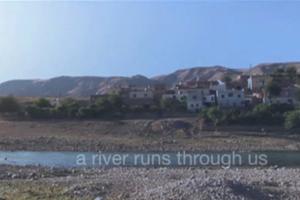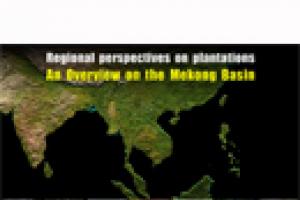Indonesia: Since April 2005, two companies involved in the building of a mega-dam in Indonesia, both owned by the a former Vice President of Indonesia, have been compulsory purchasing land from people around the Sulewana river in Poso, Central Sulawesi to make way for the construction and the displacement it will cause.
The project, known as, Poso II will affect the lives of up to 2,000 people. Residents of Peura Village are attacked by police officers as they try to prevent construction access.
Cambodia
Bulletin articles
30 December 2009
Hydropower is often portrayed as “clean” or “green” energy and as part of the solution for preventing fossil fuel-related climate change. However, government-sponsored and corporate-promoted hydropower implies building huge dams that result in environmental destruction and widespread violation of human rights, ranging from loss of livelihoods to forced evictions and related cases of repression.
Bulletin articles
29 June 2009
PRESS RELEASE. In a bold outpouring of public concern for Southeast Asia’s Mekong River, more than 15,000 people from within the six-country Mekong region and around the world have signed a “Save the Mekong” petition urging governments to abandon plans for hydropower development along the river’s mainstream. The petition – written in seven languages - will be hand-delivered to Thailand’s Prime Minister H.E.
Bulletin articles
30 May 2009
Prey Long is the largest area of intact lowland evergreen forest remaining in southeast Asia. It covers an area of about 3,600 square kilometres in the north of Cambodia. The name, “Prey Long”, means “Our forest” in the language of the Kuy indigenous people who live there. Elephants, tigers, bears, gaurs and banteng roam the forest. The hooting of the pileated gibbon can be heard. Hornbills, vipers, wild pigs and rare crocodiles, turtles, otters and frogs live in the forest.
Other information
30 May 2009
In the remote Cambodian province of Mondulkiri, the villagers of Busra feel their future fragile and uncertain since the Cambodian government has decided to grant an economic concession to a project of rubber plantation on their ancestral lands. Some of them have sold their land thinking that money was the only reliable thing they could get after months and months of defiance and mistrust.
Bulletin articles
29 April 2009
The Mekong River is one of the world’s major rivers and flows along 4,350 km (2,703 miles) draining an area of 795,000 km2. (1) As Aviva Imhof from IRN beautifully describes it, “the Mekong River is a changing kaleidoscope of cultures, geography and plant and animal life. From a small trickle in Tibet, the river quickly gathers steam and carves magnificent gorges through Yunnan Province of China.
Publications
15 December 2008
Eucalyptus, oil palm, rubber and jatropha monoculture plantations are expanding onto local communities’ lands and forests in the Mekong region’s countries. Promoted under the guise of development, poverty alleviation and even climate change mitigation, such plantations are resulting in severe social and environmental impacts.
Bulletin articles
15 December 2008
The inter-meshing of the six economies in the Mekong Basin since the 1990s has been fostered under the Greater Mekong Sub-region economic cooperation programme. This was aimed at increasing the flow of cross-border investment from countries with considerable economic might such as China, Thailand and Vietnam into neighbouring countries such as Laos PDR and Cambodia, which have a ‘doors wide open’ approach calling for foreign companies to come to invest.
Other information
15 December 2008
Since 2002, when all forest management concessions were suspended, the Cambodian Government has moved to granting
Economic Land Concessions to private companies, primarily for the development of agro-industrial cultivation of crops such
as rice, cassava, rubber, acacia and agro-fuels. These plantations are intended to not only generate state revenue and
develop intensive agricultural activities, but also reduce poverty by promoting local employment opportunities. However from
Other information
15 December 2008
Ask any Cambodian what s/he considers to be the foundation of society and life in Cambodia and the answer is likely to be “land.” Land is livelihood. But equally, land is valued as an emblem of rootedness, belonging and stability, and is widely regarded as the very basis of social organisation in the country.
Bulletin articles
25 November 2008
"The Mekong matters to the people who live round it perhaps more than any other river on earth," wrote Fred Pearce in his book about the world's rivers, "When the Rivers Run Dry". Something like two million tons of fish are caught in the Mekong River each year, second only to the Amazon. In Cambodia, 70 per cent of villagers' protein comes from fish. The Mekong is also extremely diverse, with about 1,300 species of fish, again second only to the Amazon.
Bulletin articles
27 September 2008
In North East Cambodia different indigenous groups have lived for centuries, preserving an immense and extremely diverse forest ecosystem, maintained intact until the recent decades, when massive forest exploitation started. Indigenous agricultural practices, as in many other forest-covered areas in the world, have contributed to maintain biodiversity and are among the most sustainable so far known.
The subversion of this ecological and social system is full of consequences for indigenous communities and women, as this Bunong woman from Mondulkiri explains:


